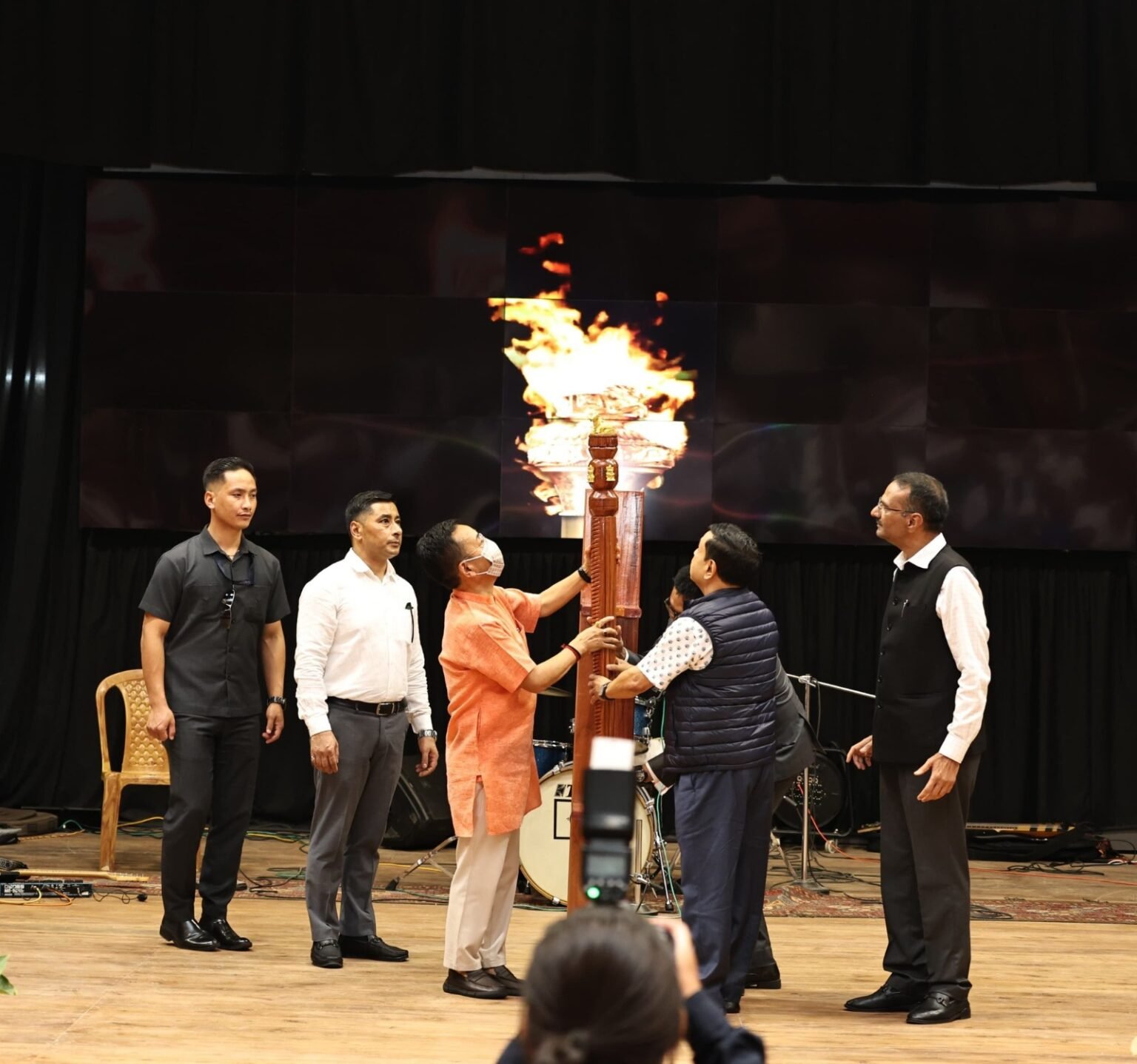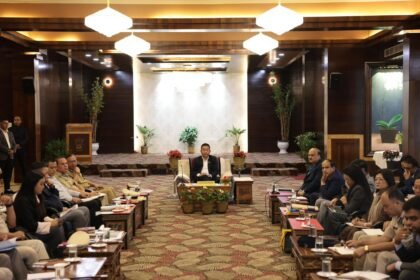GANGTOK: Sikkim observed Samvidhaan Hatya Diwas, joining the rest of the country in marking the 50th anniversary of the imposition of the Emergency, which is widely recognised as a critical moment in India’s constitutional history, here today.
A state-level programme with Chief Minister of Sikkim, Prem Singh Tamang, as the chief Guest, took place at Manan Kendra, with related events held across all districts, schools, and colleges, following directives from the Union Ministry of Home Affairs, Government of India.
The ceremony began with the Minister for Health & Family Welfare and Culture Departments, G T Dhungel, presenting the Sengol to the Chief Minister for formal installation at the venue. Secretary of the Culture department, Basant Kumar Lama, delivered the welcome address.
In his address, the Chief Minister stated that the Emergency imposed on 25 June 1975, represented an act that curtailed the Constitution to preserve political control. He said the official reasons cited were internal instability and national security, but historical records revealed that the primary motive was to suppress dissent and centralise power.
He paid respects to political leaders, activists, and citizens who were detained, persecuted, or affected during the 21-month period when civil liberties remained suspended. He said the Constitution, which now grants every citizen fundamental rights, had been significantly weakened during that time. He added that the period tested both the resilience of the people and the endurance of democratic values.
The Chief Minister stated that the Constitution remains the supreme law and must be upheld both in letter and in spirit. He said that while the Constitution provides rights, it also imposes duties, which citizens must carry out responsibly. Recalling Sikkim’s accession as the 22nd State of the Indian Union, he urged educators, youth leaders, and civil society members to raise awareness of the Emergency and its consequences. He also noted that Sikkim, along with the rest of the country, had made progress in strengthening democratic systems.
He remarked that the country’s freedom came at a cost and called on citizens to stay alert to protect democratic values.
Earlier, artists from the Culture Department performed patriotic songs in Hindi and Nepali. A short documentary film on the Emergency era was also screened.
Dr Dilip Pandey, Dean of Student Affairs at Sikkim Law College, spoke about the constitutional implications of the Emergency referring to the verdict of Allahabad High Court on Indira Nehru Gandhi vs Raj Narain case on 12 June 1975, which led to the disqualification of Indira Nehru Gandhi, triggering the imposition of the Emergency.
Dr Dilip Pandey noted the role of Jayaprakash Narayan in leading a national movement to restore democratic order. He stated that the Emergency serves as an example of how democratic institutions can be weakened when accountability is absent. He advised young citizens to remain informed and committed to constitutional principles.
The observance of Samvidhaan Hatya Diwas had the presence of Speaker of the Sikkim Legislative Assembly Mingma Norbu Sherpa, Deputy Speaker Raj Kumari Thapa, Cabinet Ministers, MLAs-cum-Advisors, Chief Secretary, DGP, Adakshyas and Upadakshyas from all districts, Zilla Panchayat members, Councillors, Advisors to the CM, Political Secretaries, former legislators, head of departments, and senior government officers.
- IPR Report





